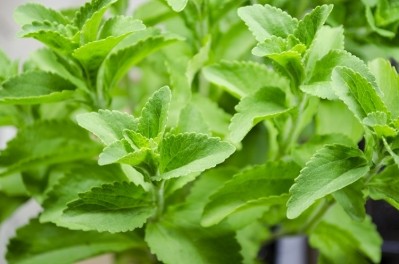How will food additives’ reputation fare in 2024?

Additives are used for various purposes in the preparation of food, including restoration, preservation, prolonging shelf life, and quality improvement. They comprise colours, preservatives, antioxidants, and flour treatment agents.
Amid new guidance and laws affecting additives, on 16th November 2023, the World Health Organization (WHO) published a factsheet on food additives, bringing together information on what they are, how they are assessed for safety and how consumers can learn about the additives in their food products.
Assessing safety of food additives
The Scientific Committee on Food (SCF) and/or the European Food Safety Authority (EFSA) assess additives to determine their safety and place them on the EU list once approved. For products traded internationally, the Joint FAO/WHO Expert Committee on Food Additives (JECFA) is responsible for assessing the safety of food additives.
The EC’s stance on food additives is now in its sixth year. The Standing Committee on Plants, Animals, Food and Feed (PAFF), which brings representatives of Member States and the Commission to discuss issues related to food safety, issued its position on food additives on 17th September 2018.
The opinion on the use of plant extracts rich in constituents capable of performing a technological function, put forward: “Such use of extracts that delivers a technological function (e.g. preservative, antioxidant, stabiliser (colour stabiliser) etc.) in foods to which they are added is deemed a deliberate use as a food additive.”
“Consequently, such use is deemed to meet the definition of a food additive, and so it shall comply with the conditions set out in the food additive legislation (including relevant specifications) and be labelled in accordance with the appropriate provisions for labelling of food additives,” the opinion continued.
“Although opinions of this Committee cannot be considered as official Commission positions, all Member States endorsed this opinion,” Stefan De Keersmaecker, spokesperson for health, food safety, regional policy and structural reforms at the EC, told FoodNavigator.
Legal stance
The PAFF opinion intends to assist Member States authorities with applying the European Union (EU) rules on food additives, most notably Regulation (EC) No 1333/2008 of the European Parliament and of the Council of 16th December 2008.
EU legislation defines additives as “any substance not normally consumed as a food in itself and not normally used as a characteristic ingredient of food, whether or not it has nutritive value”. The EU also has legislation governing labelling food additives based on predefined E-numbers.
“The enforcement of this EU legislation is the responsibility of the Member States and not of the Commission,” highlighted De Keersmaecker. “It is, therefore, for the Member States’ authorities, and not for the Commission, to take a position on the legal status of individual products, on a case-by-case basis,” De Keersmaecker added.
Following Brexit, in 2023, the UK released The Food Additives, Food Flavourings and Novel Foods Regulations 2023, amending various items of retained EU legislation about food additives and novel foods.
On 6th October 2023, the European Commission (EC) published its Commission Regulation (EU) 2023/2108, setting new lowered limits for nitrite and nitrate food additives. Implemented as a step towards Europe’s Beating Cancer Plan, Safe Food Advocacy Europe (SAFE) supported the move: “SAFE has always called for stricter nitrate and nitrite limits in food”. The regulatory update also responded to the EU’s diverse range of products and manufacturing conditions.
Changing policies
Amid financial uncertainty, regulatory changes and potential political shifts in 2024, in December 2023, FoodNavigator reported on how producers are updating their policies on food additives.
Upcoming stevia labelling changes in November 2024 will shape how brands formulate sweeteners and market them in their products. Manufacturers will need to ensure the correct labels are on stevia-product packaging, and the contents will vary depending on the ingredient’s source, adding a layer of complexity to the food supply chain.
If guidance recommends consumers limit their intake of dietary components, such as sugar, it may suggest that alternatives, like sweeteners, provide a better replacement. However, this is not necessarily the case. WHO, for example, issued a recommendation in May 2023 against using non-sugar sweeteners based on evidence that they don’t appear to benefit long-term weight loss or maintenance and may increase noncommunicable disease risk.
As the high fat, salt or sugar (HFSS) regulation settles in, it may encourage producers to look at how food additives can be used in products to replace these components but create similar organoleptic profiles to mimic taste, texture and mouthfeel.
Cultivated meat: A divided market
Slaughter-free meat grown in a lab that may be made using various food additives continues to be a hot topic on food producers’ lips and new product development (NPD) plans.
In 2022, the Netherlands announced €60 million of public funding to research and develop (R&D) cultivated meat and precision fermentation. The Dutch government delivered a document to the EC’s PAFF in 2023 seeking to qualify ‘food cultures’ as food additives. Other European markets, including Denmark, the UK, Spain and Catalonia, have also committed to developing their cultivated meat scenes.
However, in a reported move to preserve its culinary heritage, in November 2023, Italy passed a law banning the production and sale of cultivated meat and prohibiting language that describes plant-based products as meat.
“This bill tells Italians what they can and cannot eat, stifles innovation, and likely violates EU law”, the Italian Alliance for Complementary Proteins commented, the Good Food Institute (GFI) said.
As Italy banned cell-cultured meat, questions swirl around whether other countries will follow suit. “In terms of the UK’s stance, it’s unlikely we will see a ban,” Brigid McKevith, Head of Regulatory at food labelling compliance company Ashbury, told FoodNavigator. “But more should become clear near the end of 2024 when the novel foods approval process is completed for the current cultivated meat submission,” McKevith added.
A move away from artificial?
Natural preservatives, including phages and their endolysins, bacteriocins, and plant-derived substances, can offer a viable alternative to synthetic chemicals in preserving meat, an October 2023 study by researchers from Zhejiang A&F University and Zhejiang University found.
If research promotes the positive possibilities of natural preservatives, it may create opportunities for the industry to explore what natural means in the context of meat and question where it leaves synthetic food additives. However, based on current laws, this could prompt further legislative consideration. “It is important to stress that the Regulation on food additives does not define the term ‘natural’,” De Keersmaecker said.























